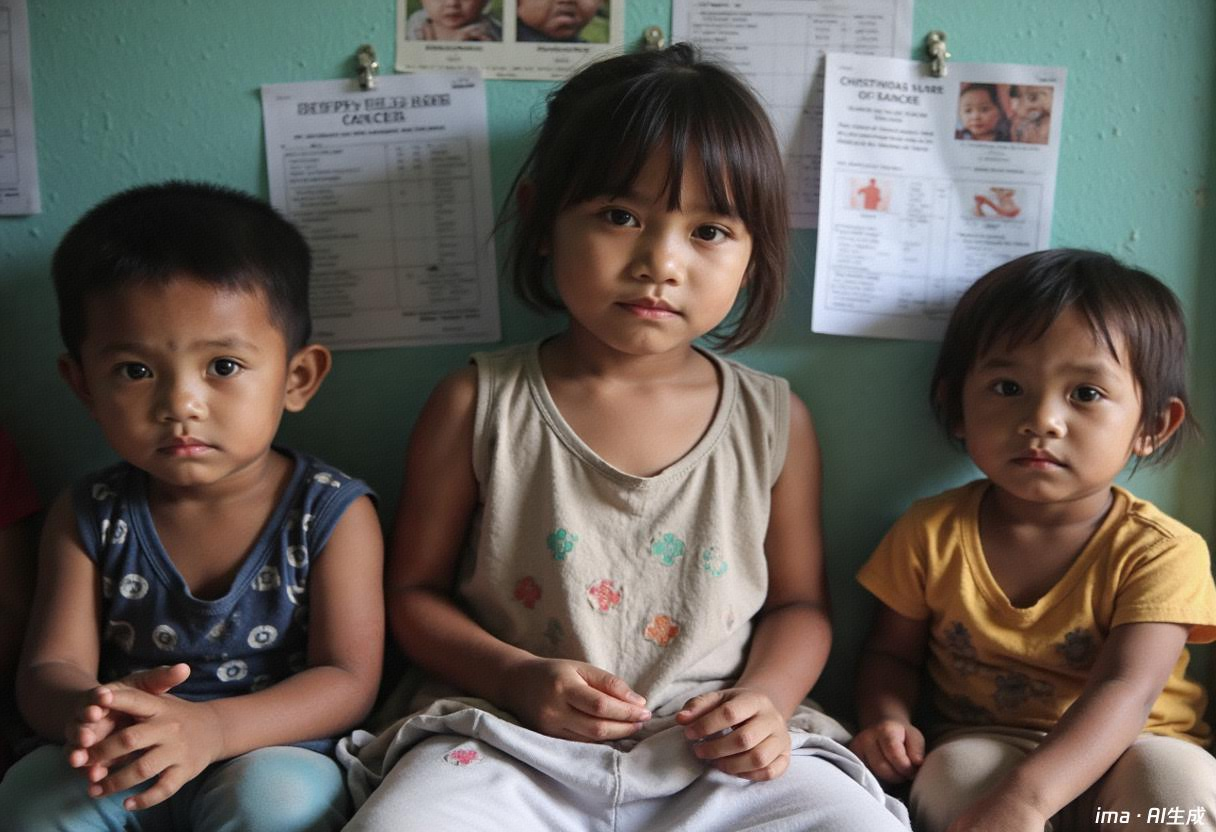Counselling For Grief
Counselling For Grief
Summarize
In the immediate aftermath of a child's passing, the family is often swept up in a whirlwind of activity and confusion. After the funeral, parents face a stark reality: life returns to its normal pace. Friends who have been visiting return to their jobs, and children go back to school. What people often overlook is that this transition can deepen the grief of many parents.
The child is gone. How do we deal with it?
During this period, parents have more time to reflect on and reminisce about their children's lives, gradually realizing that their children will not return. For parents, the sudden end of their long-term, all-consuming care for their children is a process that requires gradual adjustment. At this time, you might feel a profound sense of emptiness and loneliness, which can be overwhelming; it's important to understand that these feelings are a normal part of the grieving process.
When a loved one passes away, people often experience a complex mix of emotions, none of which are inherently good or bad. You might feel deeply saddened, angry, empty, and numb, and may cry frequently. Some parents may feel a sense of relief after their child's death, but this relief can also lead to guilt. In reality, this relief stems from the end of their long-standing tension and struggle, rather than a sense of relief as parents for their child's passing. Other children in the family might also feel a similar 'relief' because they realize the family will no longer be able to focus on caring for the sick child, and they might also feel guilty about it.
Some families may regret the process of their child's end-of-life care. "If I had made different choices, would the outcome have been different?" However, all decisions made during end-of-life care are taken under immense pressure and emotional stress. Every decision is made with the child's best interests in mind. Even after calming down, many of these decisions may seem questionable, but at the time, there was no room for such reflection. Therefore, it is crucial to avoid overly criticizing past decisions.
Many parents find themselves in a state of disorientation in the weeks following their child's passing, with tasks that once seemed easy becoming challenging. They may struggle to think clearly, concentrate, or remember things; some parents might lose their sense of direction, forget where they parked their car, or have trouble remembering people's names. These issues can worsen due to poor sleep and a lack of appetite, ultimately leading to extreme fatigue. Therefore, it's important to take good care of yourself: eat a balanced diet, get plenty of rest, and stay active. These practices will help you feel better and enjoy each day ahead.
Epidemiological
not have
Etiology & Risk Factors
not have
Classification & Staging
not have
Clinical Manifestations
not have
Clinical Department
not have
Examination & Diagnosis
not have
Clinical Management
How fathers face grief differently
No two people react to sadness in the same way. Due to the different roles men and women play in society, their reactions to sadness also vary. Society generally accepts women talking about their feelings and crying, but is reluctant to see men express their grief. People expect men to be strong and supportive, taking care of women and children. They often ask fathers about their children's mothers, but rarely pay attention to the fathers themselves. As a father, one is always expected to manage everything well and provide support, yet they are often overlooked as a close family member with their own sorrow.
The cumulative effects of various factors make it easier for men to experience physical symptoms when they are sad. When men are grieving, they tend to focus on solving problems and often use work pressure or busyness as a substitute for genuine sadness. Apart from their spouses, they rarely seek help from others or express their grief openly. Unable to express their sadness, they may resort to other methods to mask their emotions, such as working long hours or drinking excessively. These actions help them distract themselves, improve sleep, and alleviate their pain.
Compared to men, women are more likely to express their grief. Besides confiding in their spouses, they also share their sorrow with colleagues and friends. Women are more open to receiving help from others and are more willing to seek out grief counseling services and support. As a result, women generally experience fewer health issues due to the loss of a child compared to men.
Many people think that the departure of a child will make the relationship between parents closer. However, sometimes the parents of the child find it difficult to feel close to each other in the sadness, and it is also difficult to meet the emotional needs of each other in their own grief.
Here are some suggestions:
Find time alone with each other to share and discuss your grief over the loss of a child.
Listen carefully to your partner and be gentle with her/his condition.
Keep an open mind and learn more about each other's ideas.
Think twice before saying anything, especially if it might hurt the other person, such as complaining.
Try not to rush for a lot of support and feedback from the other person.
Seek professional help if necessary.
Although men and women express emotions differently, discussing their children and sharing their grief can help them move beyond the pain of loneliness. No matter how close a couple is, the loss of a child is a significant challenge. In times of pain and helplessness, relying on each other is the best way to find support and comfort in the relationship.
Take care of the other children in the family
Children of all ages experience sadness. The reactions to the death of a sibling can vary widely, depending on their age, personality, and relationship with their sibling. At different stages of their development, children may repeatedly ask about their sibling's death. As they grow older, they might also inquire more about the details of the illness that led to the child's passing.
Children often worry about forgetting their siblings as they grow older and their memory fades. To ease their anxiety, you can create a keepsake album for them, which will also serve as a memento of these memories in the future. This is a creative way to say goodbye: you and your child can explore your feelings through drawings, photos, and words.
Young children may regress when they lose a sibling. Their pain and sadness can manifest as sleep disorders, irritability, emotional tension, difficulty concentrating, and low mood, and they might even revert to thumb-sucking or bedwetting. At this time, the child needs ample attention and reassurance from their parents that they will continue to receive care and love from the family.
Please support your child in expressing their feelings and talking about their deceased siblings. Older children might express their emotions through writing diaries, composing poems, engaging in sports, or creating music and art. If your child reacts excessively or takes too long to respond, you can seek advice from professionals, such as a school counselor.
Prognosis
not have
Follow-up & Review
not have
Daily Care
ask for help
After the child leaves, seeking help becomes more challenging. This sorrow is unique and deeply personal, evoking a profound sense of loneliness. No matter how close someone is to you, they cannot fully empathize with your pain. Even if their intentions are good, they may not provide enough comfort. Sometimes, well-meaning people might say things that sound harsh, such as "At least she's no longer in pain," "He has finally found peace," "We can understand how you feel," or "This is the best outcome" —— While these words are meant to comfort, they can also make the listener feel angry and upset.
People often have a misconception that constant busyness and work can help parents divert their attention from their grief. In such cases, what you need are friends and family who don't force a smile and are willing to listen to your sadness. Sharing your child's experiences and your own journey can greatly aid in psychological healing. When your loved ones see you open up about your pain, they will also notice the love and memories you hold for your child.
Psychologists or public welfare organizations can provide a relatively safe environment for you to express your painful emotions. Discussing your situation with people outside your daily social circle can also be very helpful. Bereavement support aims to help you understand and manage your feelings and reactions, learn to respond to others' reactions, focus on your life, adjust your lifestyle, and find more support in your community. If you need bereavement support, you can consult local social service personnel to help you find public welfare organizations that offer bereavement support.
Losing a child is not a condition that can be 'cured,' nor does it leave you feeling as if nothing has changed after the event, like a flu. Instead, the pain of losing a loved one becomes an integral part of your life, gradually affecting you and accompanying you through your entire life. Special occasions such as birthdays, family gatherings, and anniversaries often evoke memories, and the memory of the departed child will continually strengthen the bond between you and your family.
Cutting-edge therapeutic and clinical Trials
not have
References
reference material :
https://www.caresearch.com.au/QuoCCA/Portals/6/Documents/Palliative-Care-for-Children-with-Cancer.pdf
Audit specialists
Expert review:
Guo Qiaohong, an associate professor at the School of Nursing, Capital Medical University, holds a Ph.D. in Nursing from the University of Massachusetts and completed postdoctoral research at the Manitoba Cancer Treatment Centre and the University of Manitoba. She is a member of the Chinese Anti-Cancer Association, the International Honorary Nursing Society, the American Society of Oncology Nursing, the American Geriatrics Society, and the Canadian Hospice and Palliative Care Society. Her research focuses on hospice care and palliative treatment
Search
Related Articles

Relaxation Therapy & Peace Care
Jul 03, 2025

Rare Childhood Tumour
Jul 03, 2025

Inflammatory Myofibroblastoma
Jul 03, 2025

Langerhans Cell Histiocytosis
Jul 03, 2025

Angeioma
Jul 03, 2025